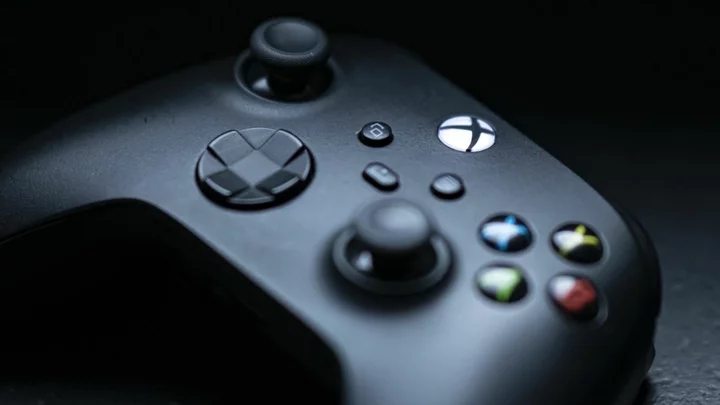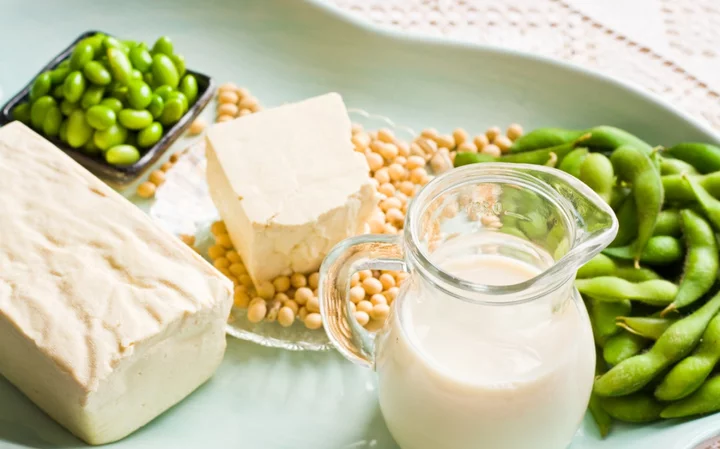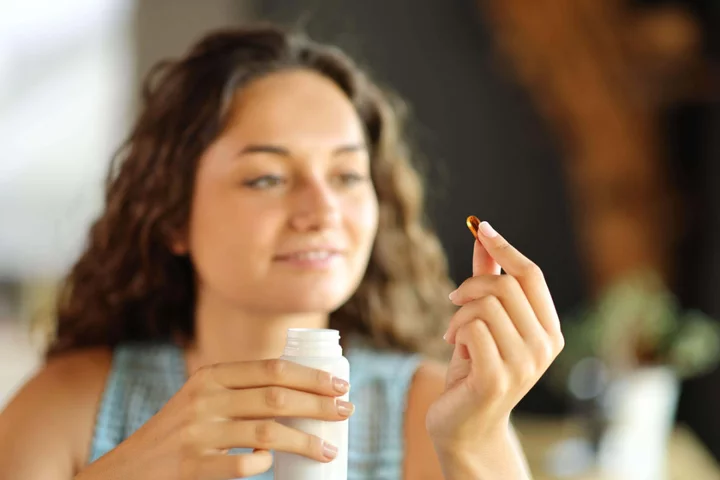
Why are wellbeing experts concerned about the ‘lazy girl job’ trend?
Have you clocked TikTok’s “lazy girl job” trend? It’s all about prioritising work-life balance over a job that drains you dry. A “lazy girl job” is one that pays well enough for you to live comfortably – but doesn’t need to define your entire self-worth and consume too much of your time and energy. On the surface, this all sounds quite healthy, a backlash to the always-on ‘hustle culture’ that’s become ingrained in the modern world. So, why are wellbeing experts concerned? Work-life balance isn’t lazy “Turning your back on hustle culture shouldn’t be deemed ‘lazy’,” Tina Woods, CEO of Business for Health, a business-led coalition focused on improving workforce health, told PA Media. “A healthy work-life balance should be encouraged, rather than shamed, and employees shouldn’t feel guilty or ashamed for prioritising their wellbeing and mental health over their work duties and workload.” So, it’s not so much the concept behind ‘lazy girl jobs’ that’s problematic. Rather, it’s the use of the word ‘lazy’ to describe somebody who works a reasonable number of hours and values their wellbeing, and the reasons we got to this point in the first place. Have we normalised overworking? There may be times when people need or choose to hustle, or devote a larger chunk of their time towards a particular goal. That’s not something we need to sweepingly demonise necessarily. “Just as we shouldn’t shame employees who do set boundaries in the workplace and [want] a healthy work-life balance, there will be some employees who enjoy ‘hustle culture’,” Woods added. “Ultimately, employees should have the choice and flexibility to work how they choose to.” What isn’t good though is how “overworking” has become “expected” as part of modern working culture, she explained. We’re seeing a growing culture of overworking being celebrated... Tina Woods, Business for Health CEO “Hustle culture has grown in popularity since the pandemic, with side hustles on the rise amongst employees, especially Gen Z. However, the notion of pushing yourself and putting your all into your work can cause both physical and mental effects. It can lead to a toxic working pattern and trigger stress and burnout, as well as physical ailments such as disrupted sleep patterns and exhaustion,” said Woods. “More often, we’re seeing a growing culture of overworking being celebrated and, in many situations, expected. Whether this presents itself through staying at the office late, or not taking a lunch break or annual leave, working tirelessly is being rewarded by some seniors, and it shouldn’t become the norm.” What does this mean for young women? The fact the trend has been centred on ‘girls’ is another point of consideration. “Traditionally, women and especially mothers have faced stigma in the workplace. This includes stigma around personality traits, maternity leave and women’s health. As a result, many female employees will feel the need to push themselves harder or work longer hours than their male peers,” said Woods. “Women and parents are more likely to report lower mental health, putting them more at risk for mental health conditions such as anxiety and depression. This, coupled with the pressure women may already feel at work and stigma, such as the latest ‘lazy girl job’ trend, means employers need to ensure they’re creating a supportive work culture and healthy environment.” Culture shift According to Woods, there is a responsibility for employers to drive cultural shifts towards a healthier approach to work with a focus on preventative measures, rather than waiting until employees are encountering problems such as burnout or chronic stress, and then responding. “Setting boundaries that lead to a healthy work-life balance is something that should be encouraged in the workplace. It’s clear that post-pandemic, the boundaries have become blurred, with many adapting to hybrid and remote working. However, this is an issue employers need to make a priority,” said Woods. “By doing so, workplaces will see higher levels of presenteeism, alongside boosted morale, engagement and productivity. In a tight labour market, attracting and retaining employees is also vital. Wellbeing plays a big role in that. “Policies such as ‘Permission to Pause’ can be really powerful in encouraging a healthy work-life balance. They give employees autonomy and the ability to stop and take some time for their wellbeing within the working day, without feeling guilty,” she added. “Perhaps, most importantly of all, employers need to listen and respond to the needs of their own workforce and sector, recognising there is no ‘one size fits all’ solution to health and wellbeing, because everyone is uniquely human. Business leaders, HR managers and line managers can work to better understand the needs of their workforce through pulse surveys, interviews, and open forums.” Read More Bride ‘reads cheating fiancé’s texts to another woman’ in front of shocked guests Duchess of Disco? Kate Middleton ‘joins 24-hour rave’ at Houghton Festival with friend Rose Hanbury Half of anxiety and depression cases in new and expectant mums are missed: 7 signs a new mum needs help Charity boss speaks out over ‘traumatic’ encounter with royal aide Ukraine war’s heaviest fight rages in east - follow live
2023-08-16 21:49

Two intoxicated US tourists 'trapped' overnight up the Eiffel Tower
Two American men were discovered on Monday after spending a drunken night up the Eiffel Tower, the monument's management told CNN on Wednesday.
2023-08-16 21:26

Star Chef Jamie Oliver’s Businesses Are Returning to Profit
Jamie Oliver’s businesses have reported an increase in profit and revenues after falling over the last few years.
2023-08-16 19:56

Edmunds: Tesla wins the EV charge plug format war
You may be familiar with previous technology format wars, whether it be VHS versus Betamax or Blu-ray versus HD DVD
2023-08-16 19:55

Xbox's New Enforcement System Can Get You Suspended for a Year
Microsoft is introducing a new enforcement strike system to tackle bad online behavior on Xbox
2023-08-16 19:29

This Morning’s Dr Zoe Williams: Why gut health could be more important than you think this summer
We tend to be more aware of aspects of our health that we can see – but your gut, and how you look after it this summer, could have a bigger impact than you think. “Although we can’t see our gut, it does influence the way that our bodies look on the outside as well,” said GP Dr Zoe Williams, one of the resident doctors on ITV’s This Morning. The health of our gut isn’t just about digestion, either. It’s closely linked to just about every system in the body, including skin, immunity, mood, and weight management, Williams explained. Signs of poor gut health can include bloating, diarrhoea, constipation, abdominal discomfort. However there maybe less obvious signs too, Williams noted, such as general fatigue, feeling sluggish, low or lacking in energy, or your skin feeling unhealthy. According to new research by Activia, 82% of Brits agree it’s important to look after gut health, but nearly a half (47%) don’t know where to start. There’s growing evidence around the links between general health and the gut, and experts believe getting good sleep and regular exercise play a part. But, what else do you need to know? Gut health, weight and diet “Gut microbiome – the community of largely bacteria but also other microbes, like viruses, fungi, parasites that live in our gut – produce chemical signals which communicate with our brain and other parts of our body, and actually can send hunger signals as well,” said Williams, 43. “The make up of that microbiome can even influence hunger and food choices. “If we feed our gut microbiome well – with a diet that’s high in fibre with a diverse range of different types of plant fibres, including as many different varieties of fruits, vegetables, whole grains, nuts, seeds and legumes as possible – those ‘gut bugs’ actually ferment fibre on our behalf, because humans can’t digest certain types of fibre.” Gut health and stress In our modern lives, we tend to have micro-doses of stress many times throughout the day, every day, Williams noted: “And as human beings, we’re not adapted to deal with that very well”. She using breathing techniques to stay calm during her work as a GP. “When we’re in that calm side of our nervous system (the parasympathetic), our body is better able to digest our food. Breathing exercises are something people can do multiple times a day. And it’s something I do between patients actually, I often do box breathing.” With this method, you breathe in for four counts, hold your breath for four counts, exhale for four counts, and then hold after your exhale for another four counts. It’s a two-way street when it comes to stress and the gut – and improving your diet can also help with stress. “The gut and the brain are physically connected by a nerve called the vagus nerve, [which] sends chemical messages to each other,” Williams added. “By making changes to improve your diet in order to try and support your gut microbiome, that in itself can actually also have an impact on on stress.” Summer travel can play havoc When it comes to travel, Williams said: “Some people are more affected than others, but it can really upset the gut.” From different time zones and foods, to having more alcohol and the effects of flying, it’s no surprise if you get more gut symptoms abroad. “I’m absolutely not the sort of person to say, ‘Don’t have a glass of wine or don’t have those extra croissants’, but you can try and combat it but making sure you’re really well hydrated and making sure you’re still getting in lots of fruit and vegetables,” Williams added. And if you’re travelling to a different time zone? “Try and get onto that time zone earlier. Sometimes people stay on a UK time until their second day, but if you can start living life according to the time zone you’re travelling to before you set off, your gut is more likely to adapt to that.” The power of a good diet Guts are creatures of habit, so while you may want to overhaul your diet, it’s a good idea to make changes gradually. “They don’t really like things to change too quickly, and they thrive when we have a very regular eating pattern and a good window of fasting, so it’s best to try not eat for at least two hours, ideally three hours before you go to bed at night,” suggested Williams. The main way to improve gut health is increasing dietary fibre intake – with a focus on variety. “We should be able to get 30 grams of fibre a day, and less than 10% of us actually manage that,” said Williams. “If you do it regularly, it can make a huge difference”. Switch up everyday staples – like white rice for brown rice, or kidney beans for mixed beans. “Include probiotics in your diet, yoghurts and kombucha, kimchi, sauerkraut, certain types of cheeses… you can use kombucha to make a salad dressing,” she added. “In summer, with the warmer weather, berries can really support your gut health. I love to eat berries in the summer.” Hydration also plays a part Williams continued: “If you’re eating lots of fibre and all the right types of foods, and you’re putting some probiotic foods in there, your body requires enough water to do the mechanical action of breaking it all down, and then to help it travel through the gut in the way that it should. “If you’re putting all that effort into your nutrition and exercising and sleeping and you just don’t have enough water, then you might not be getting the full benefit,” she warned. “Any drinks that are non-alcoholic count towards your fluid for the day, but watch out for sugar and artificial sweeteners.” Most people need between one-and-a-half to two litres of fluid a day to stay hydrated, but in hot weather or if you’re very active, then you may need more, Williams noted. Women can be more prone to gut issues “What we see clinically is that a lot of [gut] symptoms tend to affect women more,” explained Williams. There’s no definite answer as to why, but women have fluctuating hormones, which she says can cause gut symptoms too. Prostaglandins, the hormone that causes the womb to contract before menstruation, can make your bowel contract as well. “A lot of women get looser, diarrhoea or some discomfort the week before the period.” In addition, the postnatal crash after high oestrogen levels during pregnancy can impact gut health. “When you’ve had a baby, trying to have any form of routine yourself in that first few months, eating regularly and sleeping regularly is practically impossible,” Williams added. “The postnatal period is a really important time for people around the mother to ensure that she is well-nourished with really good quality food, and given time by other people to get the time she needs to rest as well.” Dr Zoe Williams is working with Activia to coach people on the A-Z of gut health and raising awareness of the gut as fundamental to your overall health. Read More Charity boss speaks out over ‘traumatic’ encounter with royal aide Ukraine war’s heaviest fight rages in east - follow live Holly Willoughby’s Wylde Moon website has started an important conversation about ‘orgasm anxiety’ – here’s why it matters Vitamin D intake ‘may reduce cancer mortality in the population by 15%’ – study Men who cycle, jog or swim could cut risk of nine cancers – study
2023-08-16 18:57

Hinge reveals the top 25 prompts of all time that will 'guarantee conversation'
Some may argue that the most difficult part of dating apps is putting a profile together – well, one of them at least. That's before the love bombing, ghosting and a string of other modern dating behaviours come into play. For the first time since 2020, Hinge has revealed the 25 most successful Prompts, based on how often they lead to a conversation. The insight is a fun look into dating today and the creative way daters are expressing themselves on their profiles. It showcases some of the ways daters are stepping out of their comfort zone to show their most authentic selves. Before we launch into them, Hinge's director of relationship science, Logan Ury (she/her) offered three tips to get the most out of your online profile. Try using your voice if you're struggling with what to write Hinge’s Voice Prompts feature is one of the most authentic ways you can express yourself on your profile. 64 per cent of daters feel a potential match’s voice is an important factor in determining if they like them and almost half (49 per cent) of users have become more attracted to someone after hearing their voice. Be Yourself Successful profiles include a mixture of both humour and vulnerability, so lean into both your silly side and your more serious one. If you want to use the ‘The Way to Win Me Over’ Prompt, dig deep and think of something original and unique to you. Stop talking about your love for “The Office” and start telling us about your secret hobby as a herbal tea connoisseur. The Perfect Prompt Answer the Prompts in a way that encourages more in-depth conversation and leads to more meaningful connections. In other words, no one-word answers, please! Whatever it is you love about who you are, make sure other people can see it. This will help you present your authentic self. Your profile should be an extension of your personality. Ideally, your Prompts should give someone a sense of what you’re like and what it would be like to date you. Paint a picture of who you are by mentioning specific quirks or pleasures can help create a vivid image of who you are and help them picture what a relationship with you would be like. Still not sure where to start? Try using one of the following most successful prompts on the platform: The way to win me over is My simple pleasures I go crazy for Together, we could My most irrational fear We'll get along if I'm looking for This year, I really want to Typical Sunday A life goal of mine My greatest strength Dating me is like I’m convinced that I want someone who Unusual skills The key to my heart is First round is on me if What if I told you that I’m weirdly attracted to My Love Language is All I ask is that you I’ll fall for you if I won’t shut up about The one thing you should know about me is I bet you can’tSign up for our free Indy100 weekly newsletter Have your say in our news democracy. Click the upvote icon at the top of the page to help raise this article through the indy100 rankings.
2023-08-16 18:51

JD.com’s Sales Beat Estimates Despite Chinese Economy Weakness
JD.com Inc.’s revenue accelerated in the second quarter after its signature 6.18 festival scored with shoppers, helping the
2023-08-16 18:49

Vegan diet can reduce hot flashes associated with menopause, study suggests
Plant-based diets with a sufficient amount of soy can reduce hot flashes while also aiding weight loss, according to the Women’s Study for the Alleviation of Vasomotor Symptoms (WAVS) trial. A study published by the North American Menopause Society in the journal Menopause found that a diet intervention is about as effective as hormone replacement therapy for reducing menopausal hot flashes, without the associated health risks. “We do not fully understand yet why this combination works but it seems that these three elements are key—avoiding animal products, reducing fat, and adding a serving of soybeans,” explained lead researcher Neal Barnard, MD, president of the Physicians Committee and adjunct professor at the George Washington University School of Medicine. “Our results mirror the diets of places in the world, like pre-Westernized Japan and modern-day Yucatán Peninsula, where a low-fat, plant-based diet including soybeans is more prevalent and where postmenopausal women experience fewer symptoms.” To conduct the study, researchers recruited 84 postmenopausal women that reported episodes of hot flashes two or more times per day. Participants were randomly assigned into two groups. One group was an intervention group that was on a low-fat vegan diet consuming half a cup of cooked soybeans daily, while the other was a control group with no dietary changes for 12 weeks. After 12 weeks, researchers found that those on a vegan diet had a 88 per cent decrease in moderate to severe hot flashes and had lost an average of eight pounds. This is about the same success rate as hormone replacement therapy (HRT), which is usually 70 to 90 per cent effective against hot flashes. The trial was split into two parts, the first being published in 2021 and the second being published this year. It successfully addressed the point that there may be positive changes seen in menopause relief due to seasonal temperature variations. The first trial, which was conducted during the autumn season raised the question of whether this symptomatic improvement might have been attributed to cooler temperatures. But women who began the study as the weather warmed up in the spring had the same benefit, ruling out the effect of the temperature outside. “These new results suggest that a diet change should be considered as a first-line treatment for troublesome vasomotor symptoms, including night sweats and hot flashes,” explains Dr Barnard. Dr Barnard and the team agree said their results not only support putting diet and lifestyle at the forefront of the conversation with hot flash relief during menopause but also for other common complications such as weight gain and chronic disease implications. “This study demonstrates the effectiveness of a dietary intervention for menopausal symptoms,” Dr Barnard said. “As well, it is precisely the diet that would be expected to reduce the health concerns of many women reaching menopause: an increasing risk of heart disease, breast cancer, and memory problems.” The findings are published in the journal Menopause. Read More What are the symptoms of menopause and how can they be relieved? What’s the link between the menopause and anxiety? Menopause affecting your mental health? Experts reveal what to do What I gained (and lost) by walking 10,000 steps each day for 5 months Raven-Symoné details cosmetic surgeries she had before she turned 18 Nearly half of US adults are interested in taking weight loss prescription drugs
2023-08-16 17:23

Tesla Cuts China Prices for the Second Time in Three Days
Tesla Inc. made its second round of price cuts in China this week, further fueling concerns the carmaker
2023-08-16 17:19

Vitamin D intake ‘may reduce cancer mortality in the population by 15%’ – study
Taking regular Vitamin D supplements may reduce cancer deaths in the population by 15%, according to scientists. Data gathered from the UK Biobank, an online database of medical and lifestyle records of around 500,000 Britons, indicates vitamin D deficiency is linked to an increased cancer mortality risk – particularly in relation to bowel, stomach, prostate, and lung cancers. The researchers said their work, published in Elsevier’s European Journal of Cancer, adds to evidence that vitamin D may have a protective effect against cancer. While the findings do not explain why this happens, the team said one possibility is that vitamin D supplements may induce anti-inflammatory, antioxidant, and DNA damage repair mechanisms, which can thwart mutations that allows tumours to grow. Study author Ben Schottker, an epidemiologist at the German Cancer Research Centre, said: “Our findings identified a statistically significant relationship between vitamin D deficiency and increased mortality among several cancers. “These results can be explained by other studies, which found mechanisms by which vitamin D inhibits cancer growth and metastasis.” The NHS advice is that adults and children over four take a daily supplement containing 10 micrograms of vitamin D throughout the year. According to the Department of Health and Social Care, around one in six adults and almost 20% of children in the UK have vitamin D levels lower than government recommendations. Older people, the housebound and people from black and South Asian communities are more likely to have lower levels of vitamin D. Our findings identified a statistically significant relationship between vitamin D deficiency and increased mortality among several cancers Ben Schottker For the study, the researchers looked at data from more than 400,000 people aged 40–69. In-depth medical information was gathered through blood, urine and saliva samples. A short interview and a questionnaire as used to assess vitamin D consumption as well as lifestyle factors such as alcohol consumption, smoking. Follow-up data on health outcomes were gathered through NHS links as well as care data, cancer screening data, and disease-specific registers. Over a period of nearly 13 years, close to 13,000 people died of cancer. Results showed a majority of the study population had either vitamin D deficiency (21.1%) or insufficiency (34.4%) – used to describe low levels of vitamin D. Of the people involved in the study, only 4.1% regularly took a vitamin D supplement and 20.3% regularly took a multivitamin. Results showed that vitamin D supplement users had 15% lower total cancer mortality and 25% lower lung cancer mortality compared to those who did not take the supplement. The also found researchers found that those with vitamin D deficiency had 42% increased mortality for stomach, 27% for bowel, 24% for lung, and 36% for prostate cancers. Meanwhile those with vitamin D insufficiency were found to have 14% increased bowel cancer mortality and 19% increased lung cancer mortality. The scientists said that the potential to reduce cancer mortality by vitamin D supplementation in populations with low levels should be further explored in new research. Commenting on the study, Dr Jenna Macciochi, senior lecturer in immunology at the University of Sussex, said: “This study adds to the growing body of evidence on vitamin D and cancer. “Vitamin D plays multiple key roles in immune health and the immune system is part of the body’s cancer defence system. “With cancer rates rising and presenting a serious public health issue, its useful to have further insight into the role of vitamin D in the prevention of cancer.” But Dr Macciochi also cautioned that the Biobank data might not be diverse and representative of the whole of the UK population. Alex Ruani, doctoral researcher at University College London and chief science educator at The Health Sciences Academy – who was not involved in the study, said that the exact dosage taken by participants was not ascertained and the risk reduction was not the same for all cancers. She said: “This research doesn’t imply that taking vitamin D3 supplements will for sure lower your risk of death from cancer. “Supplementation may help with consistent vitamin D levels, whereas production from sunlight can be variable and dependent on weather, time of the day, exposure duration, being outdoors or indoors, protective UV wear or sunblock, and many other factors.” She added: “Common food sources of vitamin D3 include full-fat dairy, egg yolks, and fish. “Although toxicity is rare, there is an upper tolerable limit set in the UK, where vitamin D3 supplementation shouldn’t exceed 100 micrograms a day.”
2023-08-16 17:15

Men who cycle, jog or swim could cut risk of nine cancers – study
Male joggers, swimmers and cyclists could be cutting their risk of nine cancers, a new study suggests. Researchers found that men with good cardiorespiratory fitness are far less likely to go on to develop cancers of the head and neck, stomach, pancreas, liver, bowel, rectum, kidney, lung and oesophagus. Cardiorespiratory fitness refers to a person’s ability to do aerobic exercise, such as running, cycling and swimming for sustained periods, or even to climb stairs. The new study, published in the British Journal of Sports Medicine, saw experts from Sweden track just over a million men for an average of 33 years. The men involved in the study were conscripted to military service in Sweden between 1968 and 2005. At the start of their conscription the men underwent a battery of tests assessing a number of factors including their height, weight, blood pressure, muscle strength and cardiorespiratory fitness. During the follow-up period, about 84,000 developed cancer. Researchers found that, compared with those with low cardiorespiratory fitness, men with a higher level of cardiorespiratory fitness were: – 19% less likely to develop head and neck cancer.– 39% less likely to develop cancer of the oesophagus (food pipe).– 21% less likely to develop stomach cancer.– 40% less likely to have liver cancer.– 18% less likely to develop bowel cancer and 5% less likely to develop cancer of the rectum– 20% less likely to develop kidney cancer.– 42% less likely to develop lung cancer.– 12% less likely to develop pancreatic cancer. “These results could be used in public health policymaking, further strengthening the incentive for promoting interventions aimed at increasing [cardiorespiratory fitness] in youth,” the authors wrote. The researchers did find that higher cardiorespiratory fitness was linked to a slight (7%) increased risk of prostate cancer and a 31% increased risk of skin cancer. A previous study examining the same data set suggested the slight increase in risk for prostate cancer was not linked to a higher rate of aggressive prostate cancer or prostate cancer death, and could be attributable to increased screening. The authors suggested a higher skin cancer rate could be explained due to “higher UV exposure”. Read More Charity boss speaks out over ‘traumatic’ encounter with royal aide Ukraine war’s heaviest fight rages in east - follow live Why are wellbeing experts concerned about TikTok’s ‘lazy girl job’ trend? Red flags you might be missing about your child’s online safety Rumer Willis says she is ‘grateful’ to her body following birth of daughter
2023-08-16 16:57
